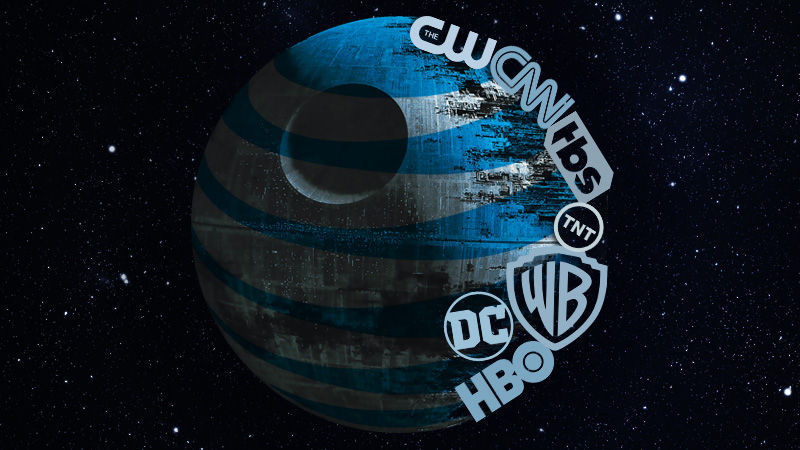
The Trump administration's Department of Justice (DOJ) today filed a lawsuit to block AT&T's proposed acquisition of Time Warner Inc.
AT&T has been the nation's largest pay-TV company since it acquired DirecTV in 2015. Acquiring Time Warner and its stable of popular TV programming would give the company too much control over programming and distribution, the DOJ said.
Together, AT&T and Time Warner would attempt to impede competition from online video distributors and raise prices on rivals that want access to Time Warner programming, the DOJ alleged.
The DOJ complaint says:
AT&T/DirecTV would hinder its rivals by forcing them to pay hundreds of millions of dollars more per year for Time Warner's networks, and it would use its increased power to slow the industry's transition to new and exciting video distribution models that provide greater choice for consumers. The proposed merger would result in fewer innovative offerings and higher bills for American families.
The DOJ's complaint was filed in the US District Court for the District of Columbia. The complaint says the deal violates Section 7 of the Clayton Act, which prohibits mergers and acquisitions that lessen competition or create a monopoly.
The complaint seeks a court order that would permanently bar AT&T from acquiring Time Warner.
"This merger would greatly harm American consumers," DOJ antitrust chief Makan Delrahim said in an announcement. "It would mean higher monthly television bills and fewer of the new, emerging innovative options that consumers are beginning to enjoy."
The proposed $108 billion transaction would be "one of the largest in American history," the DOJ said.
AT&T vows to fight lawsuit
AT&T said it will fight the DOJ lawsuit. "Today's DOJ lawsuit is a radical and inexplicable departure from decades of antitrust precedent," AT&T General Counsel David McAtee II said. "Vertical mergers like this one are routinely approved because they benefit consumers without removing any competitor from the market. We see no legitimate reason for our merger to be treated differently."
Time Warner is the owner of programming such as HBO, CNN, and Warner Bros.
The DOJ and AT&T previously were negotiating over terms that would allow the merger to be approved, but they did not come to an agreement. The DOJ reportedly told AT&T that it could complete the merger either by selling DirecTV or by having Time Warner sell CNN. But AT&T CEO Randall Stephenson said he intends to buy Time Warner with CNN included, and he said the company was prepared to litigate.
Trump's hatred of CNN has raised questions about the independence of the DOJ from the White House, which could play a role in the court case.
"AT&T intends to seek court permission for access to communications between the White House and the Justice Department about the takeover," Bloomberg reported last week. AT&T may try to prove that the White House improperly influenced review of the merger.
AT&T and Time Warner together "would have an increased ability" to charge higher prices to online video distributors, such as Sling TV, the DOJ's lawsuit said. The complaint alleged:
Without the Turner networks, even virtual MVPDs [multichannel video programming distributors] such as Sling TV, which to date has been the most successful virtual MVPD competing with traditional MVPDs, may not continue to be the competitive force they are today. Turner knows this. Its CEO has stated that it has "leverage" over Dish, whose online Sling TV service "is shit without Turner."
The merger is unlikely to generate enough benefits in the relevant markets to outweigh the deal's anti-competitive effects, the complaint said. Even "[e]ntry of new video programming distributors in the relevant markets is unlikely to prevent or remedy the proposed merger's anti-competitive effects," the complaint said.
AT&T has said the merger will benefit consumers with "more relevant advertising in ad-supported video services" and "greater choice, convenience, and value in programming bundles."
reader comments
104